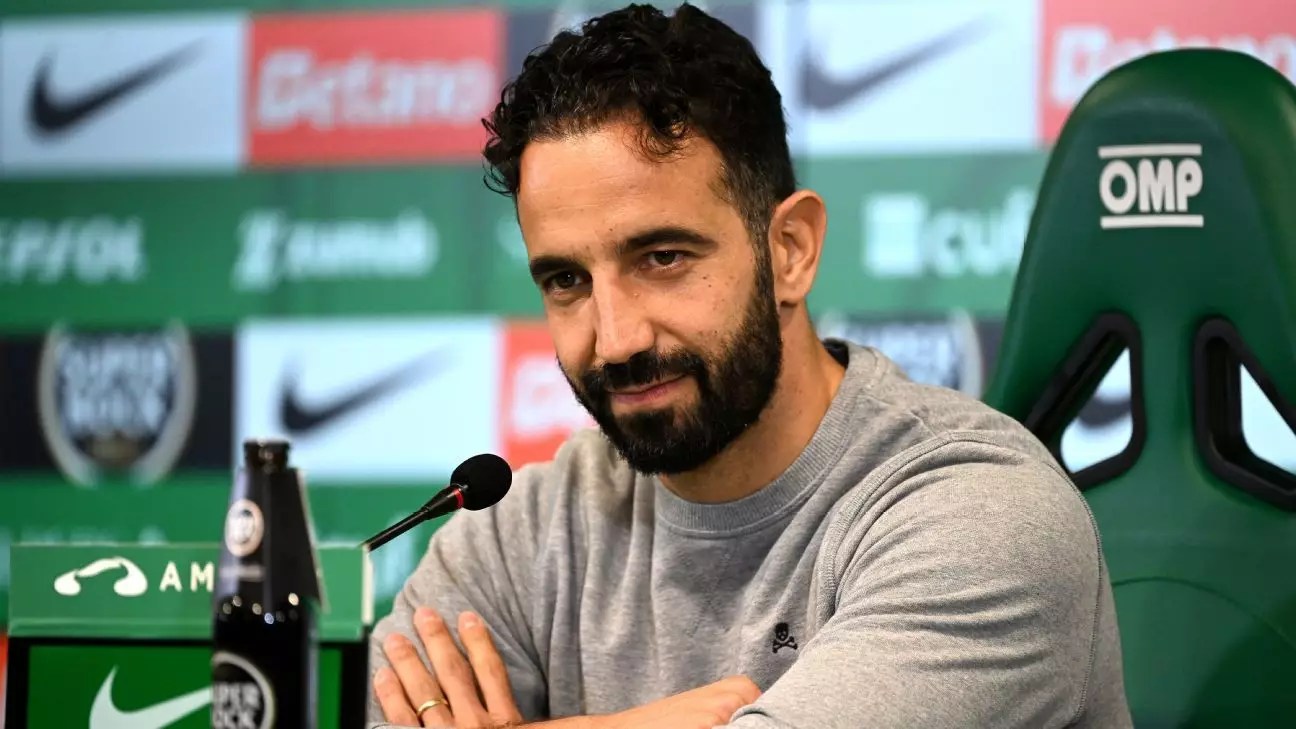The appointment of Rúben Amorim as the new head coach of Manchester United marks a pivotal moment in the club’s ongoing quest for stability and success. He has signed a two-and-a-half-year contract and will officially assume his role on November 11. His arrival follows a tumultuous period marked by the mixed fortunes of his predecessor, Erik ten Hag. Amorim’s initial task will involve addressing immediate matters concerning player contracts as several key squad members face uncertain futures.
With a selection of players’ contracts expiring at the end of the season, Amorim will be given a substantial role in deciding their fates, particularly for individuals like Victor Lindelöf and Christian Eriksen. The club’s decision-makers, including CEO Omar Berrada and sporting director Dan Ashworth, will ultimately have the final say, but the head coach’s insights will be integral. Such an approach indicates a collaborative effort between management and coaching staff, a shift from Ten Hag’s more authoritative style.
Hearing Amorim’s thoughts, especially as he assesses players through a fresh tactical lens, seems prudent. Players like Harry Maguire and Amad Diallo, whose contracts also expire soon, will have the chance to prove their worth under Amorim’s 3-4-3 formation. This tactical overhaul could play a crucial role in determining the club’s squad depth moving forward.
Amorim’s influence over recruitment will be notably different than that experienced under Ten Hag. The Portuguese coach will focus primarily on developing the existing squad rather than selecting new signings, which could further shape the dynamics of the club. The constraints of this new role present both challenges and opportunities for Amorim and his players.
For instance, Maguire faces the challenge of claiming a starting position after struggling with component tactical fit under Ten Hag. His familiarity with a three-man defense could enable him to adapt seamlessly to Amorim’s plans. In contrast, Lindelöf, who was the subject of transfer speculation prior to an injury during preseason, could experience renewed opportunities under Amorim, especially given their shared history at Benfica.
As Amorim steps into this new stance at Manchester United, the framework for his initial period suggests a gradual adjustment for both him and the team. The technical staff, guided by Amorim’s evaluation, will work on constructing a roster that aligns with the club’s ambitions.
While the expectation is that he will assert his authority tactically, the systemic input from the club’s executive team remains critical. Ultimately, Amorim’s ability to navigate the complexities of player relationships, cohesive team structures, and the overarching objectives of Manchester United will determine the trajectory of his tenure. With his strong tactical acumen and keen judgement, Amorim’s era could herald a transformative chapter for United, provided both the players and management embrace the changes ahead.


Leave a Reply